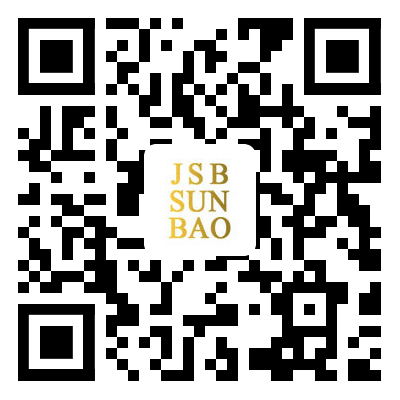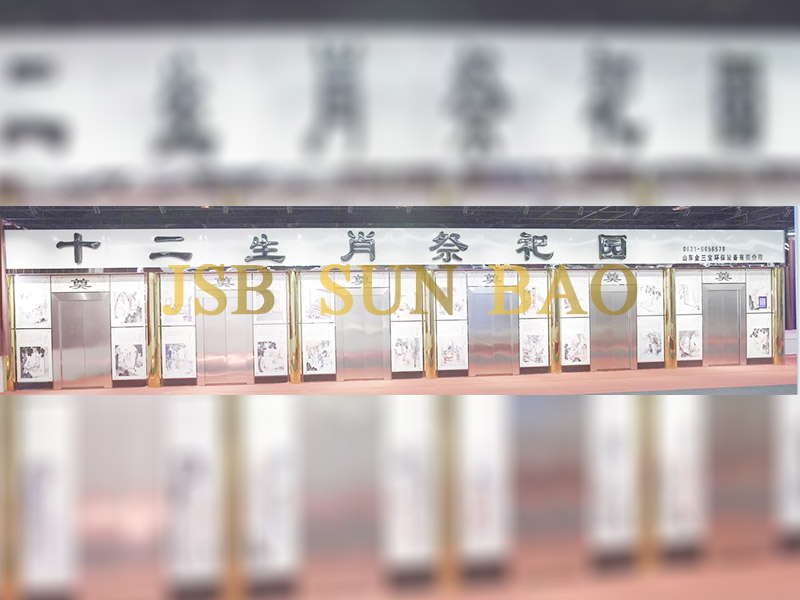Daquan of commonly used honorifics
- Categories:Cultural world
- Author:
- Origin:
- Time of issue:2021-03-18 15:58
- Views:
(Summary description)Respect poems are also used as polite words. They are words with respect and politeness to others, which can reflect the literary accomplishments of many people. Chinese traditional culture is extensive and profound, and honorifics are a very important part of it. Many commonly used honorifics have evolved slowly since ancient times.
Daquan of commonly used honorifics
(Summary description)Respect poems are also used as polite words. They are words with respect and politeness to others, which can reflect the literary accomplishments of many people. Chinese traditional culture is extensive and profound, and honorifics are a very important part of it. Many commonly used honorifics have evolved slowly since ancient times.
- Categories:Cultural world
- Author:
- Origin:
- Time of issue:2021-03-18 15:58
- Views:
Respect poems are also used as polite words. They are words with respect and politeness to others, which can reflect the literary accomplishments of many people. Chinese traditional culture is extensive and profound, and honorifics are a very important part of it. Many commonly used honorifics have evolved slowly since ancient times.
Your Excellency --- the original meaning refers to the subordinates under the pavilion, by means of the subordinates who are on standby under the pavilion. In order to show respect for the person above, the ancients did not directly address the person when calling the other person, but lightly called the person who was waiting to tell him, "because of humbleness and respect." In this way, "Your Excellency" gradually generalized into a general honorific.
Madam---The term "lady" has a specific meaning in ancient times. "Book of Rites·The Second Quli": "The concubine of the emperor is called the queen, and the hous call the lady." The wives of the hous are called "lady." In the Ming and Qing Dynasties, the wives of officials of the first and second grades were named "Mrs." Later, "Mrs." was used to honor ordinary people's wives, which meant to elevate the identity of the other person.
Zun---The original meaning is "wine vessel", which is later the word "zun". Duan Yucai's "Shuowen Jiezi Note": "Whoever drinks wine must be true to respect, to be worthy of the drink... Whoever drinks wine must be worthy of respect, so the word "respect and inferior" is extended." The ancients drank wine and paid great attention to etiquette. , Toasting is often an essential part. Must give "respect". The relationship between the action of toasting and the "zun" of the wine vessel has formed a fixed association after long-term accumulation, so the word "zun" also extended the meaning of "respect", further abstracted it, and gained the title of respect. Pragmatic function.
There are many commonly used respectful speeches, which can be divided into respectful speeches, modest speeches, euphemisms, and polite speeches.
The word "Ling" is used to address relatives of each other. For example, Ling Zun: called the other's father; Ling Tang: called the other's mother; Ling Lang: called the other's son; Ling Ai, Ling Yuan: honored the other's daughter; Ling brother, Ling brother, Ling nephew, etc.
The word "Bai" is used when one's own behavior involves the other party. For example, visit: refer to reading the other party's article; visit: refer to visit the other party; worship: refer to admire the other party; greet: refer to congratulate the other party; please: refer to the other party to do things; visit: refer to visit the other party.
The word "Fong" is used when one's actions involve the other party. Such as comment: tell; return: return; accompany: accompany; advise: advise; give or give: gift.
The "Hui" family is used for the other party's actions towards oneself. Such as Hui Cun (mostly used for the above paragraph when giving away photos, books and other souvenirs): Please save; Hui Lin: refers to the other party to come to yourself; patronage (mostly used in shops to customers): Come; favor: refers to the other party Allow yourself (to do something); gift: refers to asking the other party to give (property, etc.).
The word "Gong" means treating each other respectfully. Such as congratulations, congratulations, congratulations, congratulations, etc. The most common ones are "Gong Xi Fa Cai" and "Congratulations to the New Year".
The word "vertical" is used in the actions of others (mostly elders or superiors) on themselves. Such as cherishing (both used in letters): calling the other person's love for oneself; cherishing: calling others' value to oneself; asking and inquiring: calling others' inquiries about oneself; thinking about: calling others' thoughts of oneself.
The word "expensive" refers to things related to the other party. Ruguigan: ask the person what to do; Guigeng: ask the person’s age; your surname: ask the person’s surname; Guichao: call the other person’s illness; Guizi: call the other person’s son (including blessing); your country: call the other person’s country; Gui School: Call the other party's school.
Frequently used respect
Defending the title: Refers to keeping the title won last time in the competition.
Give a gift: a respectful speech, referring to the other party’s gift (property)
Huiyun: Respectful remarks, referring to the other party allowing oneself to do
Arrival: Respect, saying that the other party is coming
Seeing to teach: polite remarks, advice (me), such as "what can I see and teach"
Forgive me: a polite remark, please forgive me
Borrow light: polite words, used to ask others for convenience or to ask others
Borrowing weight: Refers to borrowing the power of other people and using it as a respectful speech.
Golden Wedding: European custom called the 50th anniversary of marriage
Jin Lan: It can be used as a pronoun for brothers and sisters, such as "Yijie Jinlan"
Jin Jian: Go to meet, (refer to the chief)
Introduction: To give people an opinion (respectful or polite), such as "a word to you", "a word of boldness"
Jin Jian: Jin Jian
Attendance: (Book) Chao Jian (Monarch)
asks down: Respectful remarks, expressing the inquiries of others (often referring to elders or superiors) of oneself.
愛愛: (book) respectful words, saying that the other person (often referring to elders or superiors) loves oneself (mostly used in letters)
Long time absence: polite remarks, long time no see
Long Yang: polite remarks, admired for a long time (said when we first met)
Aspiration: Refers to the conspiracy to seize power (neutral word)
弉丽: (book) husband and wife, like the love of niece
Labor: Respect, used to thank others for visiting
Excuse me: a polite remark, used to ask others to do something or give way
stay step: a polite remark, used when the host sees off the guest, the guest asks the host not to send it out
Covered in dust: (Book) suffered from dust, (referring to the monarch fleeing due to war)
Name taboo: In the old days, it refers to the name of the elder or respected person.
family members: refers to women family members
The insider: calling others his wife
Appreciation of the face: polite remarks, used to ask the other party to accept their own requests or gifts
Shejian: Qian called her own home, also called "shexia"
Family: one's own relatives.
Mount Tai, Taishui: father-in-law, mother-in-law
TOEFL: polite remarks, relying on the wealth of others to make yourself lucky.
Respect classification
(1) Respect
Jun seat-refers to the position of the chief or superior. Jun: Used for things or behaviors related to the other party, aimed at the elders or superiors.
Jun arbitration-please judge the matter by the chief or superior.
Jun sign-please distinguish it from the chief or superior.
Jun Qi——Please turn on the chief or superior.
patronize-call customers come, merchants usually use it to welcome customers.
patronage-mostly used in shops to customers. Hui: Used for the other party's actions towards oneself. Such as: furniture exhibition, please patronize.
Benefits——refers to the other party's gift (property).
Hui Cun-ask others to keep your own photos, books and other souvenirs.
Favorable-Refers to the other party allowing oneself (to do something).
Hui Lin-Refers to the other party to come to oneself.
come-call the distinguished guests come.
come-call the customer come.
Arrival-call the other party's arrival. Driving: Refers to a vehicle, borrowed as a courtesy to call the other party. Such as: be prepared for the Philippines, waiting for your visit.
璧咧——Used to return original objects or give away gifts.
Bi Xie——Return the original items and express gratitude (mostly used to give thanks for gifts).
Yajiao-called the other side's advice. Ya: Used to call the other's affection and behavior.
Ya Yi-refers to the affection or opinion of the other party.
Yazheng-Refers to asking for advice when you give your own poetry, writings, etc. to someone.
Axe Zheng-used to ask people to change the article. Also make an axe policy.
Chengzheng——Send your own work to others for criticism and correction. Also make a submission.
書時,書會——means other people (often referring to elders or superiors) asking themselves.
Remembering-elders, superiors miss themselves. Such as: Thank you very much.
愛愛——Call the other person (often referring to elders or superiors) for their love (mostly used in letters).
Say goodbye-say goodbye to others. By reading-reading other people's articles. Visit-visit others. Admire-admire others.
congratulations-congratulations to others. Please-trust someone to do things.
Give away, give away-give away. Bong: The actions used for oneself involve the other party.
Fengda-tell, express (mostly used in letters).
Feng Fu-Reply (mostly used for letters). Advice-tell others.
Fongtu—please. Bong accompany-to accompany, accompany to do something.
Gaozu——Students who call others.
Gao Jiao-Refers to a person who leaves his original position and takes up a higher position.
wise opinion-wise opinion (used to compliment each other).
Gaoshou-used to ask the old man's age.
高堂——respectfully called the parents of others.
Taiwan end-formerly called each other (mostly used for letters sent by agencies and organizations to individuals). Such as: I would like to appoint Taiwanese to guide the drama of the agency.
Taifu-a table word used by others in the past.
Taiwan driving-formerly called each other. Such as: Jinghou Taiwan's visit.
Taijian—an old-style letter formula, used after the initial address, to indicate that the other party should read the letter.
Father, respected father, respected adult-called each other's father. Order: Used for relatives or related persons of the other party.
Lingtang, Taijun-called each other's mother. Let the relatives-called the relatives of the other party. Ling Ai (Ling Yuan), Qian Jin, Yu Nu-called each other's daughter.
Ling Si, Ling Lang, Zhe Si-called each other's sons. Ling Zheng, Ling Yun (kǔn)-called each other's wives. Ling Tan-called each other's son-in-law.
Kunzhong, Kundi, Kunji-called each other's brothers. The growth is Kun, the young is the season.
Bingweng, Tai Shan-formerly known as the father of his wife. Ruins-formerly known as the wife of a doctor.
Shaojun, Gongzi——the honorific name for other people's sons in the past. The father-in-law-the old honorific name for the elderly.
Brother Ling-call someone else's elder brother. Lingmei-called someone else's sister.
Guigeng——Ask about the age of others. Can be used for middle and young people.
Your body-called other people's body. Your last name-ask someone else's last name. Gui Chao-Ask about other people's diseases. Guigan-ask others what to do.
submissive-used to ask the other party to agree to take up the position. Such as: the position of manager, is still praying and condescending.
Nian Nian-call the other party or superior body Nian. Such as: contemplating group sentiment.
submissively-say that the opponent or superior allows it.
House-called the other side's home.
House-called the other party's home or hometown.
virtuous deed-a respectful name for disciples or friends, nephews and nephews (mostly used in writing).
Borrowing weight-refers to borrowing other (power). For example, our company will repay you a lot in the future, and we will often trouble you.
Fashu-call the other party's written words.
One step-call each other respectfully. Please-ask someone to do something.
Thousands of Autumn-called people's birthday. Mingjiao-brilliant advice (mostly used in letters).
Anniversary-called the age of the dead (mostly refers to the elderly).
masterpiece-call the other party's work. Dajia-call each other.
Undress-used to ask the other party to undress. Wrong driving-wronged driving (mostly used for inviting people).
My dear friend-a respectful name for a friend.
Your Majesty, Great King, King, Supreme, Monarch, Son of Heaven, Wancheng, Holy Lord, Holy Supreme, Head of State, Nine Heavens-different names for emperors in ancient times.
Khan, Shan Yu-the title of the supreme ruler of the ancient ethnic minorities.
(2) Modest speech
Family father, Jia Yan-call yourself father to others. Family mother, family love-calling one's own mother to others.
Brother-in-law called his brother. Sister-in-law—called his sister to others.
Humble opinion-call one's own words or calligraphy and painting. Clumsy, clumsy-call yourself articles.
Not talented-saying that he has no talent. Don't dare to be-means you can't afford it (the other party's hospitality, compliments, etc.).
No Ning——No talent, used to call oneself modestly in the past. Not sensitive-not smart, often used to express self-humility.
Humble House-to people call one's own home. Poor family-refers to one's humble background.
Brother Yu-refers to people who are older than oneself and call themselves. Foolish brother-refers to people younger than oneself called himself.
ignorance-call your own opinion. Contempt-call your own opinion.
Contemptible——Shallow and humble (used as a modest speech). I, my fellow-call yourself modestly to others.
graffiti-saying that his handwriting is bad. Meandering-Modestly called his weak ability.
Insufficient-means that because there is no suitable candidate for the position for a while, he has to fill it temporarily.
See you laughing-being ridiculed by others.
She Jian, She Xia-Modestly call her own home. Leave relatives-modestly call one's relatives.
Stealing thoughts, stealing behaviors-modestly express their own opinions.
Laggard, late school, late birth, junior-call yourself to the elderly.
Excessive praise or praise-excessive praise or praise (used when the other party praises oneself).
lonely, widowed, zhen, not gu-ancient monarchs called themselves humble.
Chen, servant, foolish, Mongolian, shameless, shixia, xiazuo, xiaguan, district, cattle and horse walk, villain, Xiao Ke, posterity, late student, waiter-refers to the self-proclaimed by ordinary people in ancient times.
Clumsy Jing, Jian Nei, Wife, Shan Jing, Jing Wu, Shan Wife—In ancient times, they called themselves their wives.
Infant, Dog, Xinan-called his own son in ancient times.
Xi Nu, Xiao Nu-ancient times called his own daughter.
Peng Xun Zenghui: Modest resignation means that oneself is very honorable because others come to their homes or hang up calligraphy and paintings given to them by others.
To throw a brick to attract jade-modest words, metaphorically use superficial and immature opinions to elicit other's clever and mature opinions.
(3) Euphemism
Make ancient times, return to heaven, return to the west, soul travels to the land, eternal sleep, long sleep, smiling nine springs, impermanence, immortal death-referring to death.
Hanging flowers, hanging colors-refers to people who have suffered gunshot wounds. Shengya-a euphemism for the death of an emperor.
Sitting, passing away, Nirvana-refers to the death of monks and nuns.
Qi skeletal bones-ancient officials resigned themselves, meaning that the bones were buried in their hometown.
Seeing the back-facing each other, left me. Refers to the death of a parent or elder.
Pause your head-bow your head, bow your head to the ground and worship. Used for the beginning and end of letters and table melodies. Through the ages-mourning the dead and expressing farewell.
Yuanjia-a person who is said to be hateful but true love, who brings distress to himself but is reluctant (used to be a lover in old operas or folk songs).
Abandonment-refers to the death of both parents.
(4) Guest phrases
Excuse me—please trouble others. Gao Pan-Hope to work with others or marry. Forgive me-please forgive others.
Borrow light-used to ask others for convenience or to ask others.
See and teach, enlighten-ask others for advice. Correction-ask others to advise and correct. Condescend-lower your status and condescend.
Quiz—used to hire people to take up positions. It's been a long time-refers to a long time no see.
Long admiration-admiration for a long time.叨 (tāo) light-touch light (to receive benefits, to express gratitude).
叨教——Leadership (received advice, express gratitude).
Disturbance-Disturbance (be hospitalized, thank you).
TOEFL-is to rely on the blessing of others to make oneself lucky (mostly used to answer other people's greetings).
Relentless request-an unreasonable request (called your own request when asking for help).
I do not hesitate to teach-I do not hesitate to teach my own experience.
Please reply immediately-a polite remark that asks others to reply.
Should not be sent far away-it means that it will not continue to be sent. Forgiveness: Please don't care about the other party.
Listen to the ears—attentively (the kind words that people say when they are invited to speak).
Not enough to talk about-saying that my own business is not worth mentioning. Borrow flowers to offer Buddha-behave with other people's things
WRITE A MESSAGE TO US

An enterprise integrating research, design, development, and sales of intelligent manufacturing cremation equipment and supporting facilities
CONTACT
ADD:
No. 10, Xintai Road, Economic Development Zone, Rushan City, Weihai City, Shandong Province
E-MAIL:
TEL:
+86-17863078877、+86-0631-6656578

all rights reserved:JSB SUN BAO 鲁ICP备2021012538号-1 300.CN This site supports IPV6 access
















